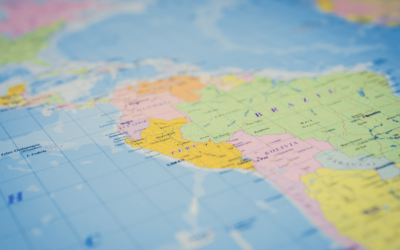I love Japan and everything about it. From the beautiful sea and mountain landscapes, to the cherry blossoms, to the nightlife and drinking culture, to anime and amazing cars, I love this country. However, learning to speak Japanese is a unique journey. That’s my polite and respectful way of saying it’s really difficult.
Some people dive in thinking they’ll pick it up in a few weeks, while others are more realistic about expectations and timelines. So, how long does it actually take to learn Japanese? Well, if you Google this question, almost everything you will see will recite 2,200 hours as the answer. That is your standard response.
However, the answer to this question actually depends on a number of factors, including your desired level of fluency, learning environment, personal motivation, availability to study, exposure to the language, natural language acquisition skills, and more. So how long exactly does it take? Let’s break it down.
Starting Point
Are you already familiar with another Asian language like Korean or Chinese? If so, you’ll have a head start. Knowing another language with similar sentence structures and characters can cut down the time needed to learn Japanese.

But if you’re a native English speaker with zero basis in Chinese or other Asian languages, it’s going to be tough sledding to start. Japanese can feel really challenging because of its different grammar, writing systems, and cultural context.
Japanese Writing System
Japanese has three scripts: Hiragana, Katakana, and Kanji. Hiragana and Katakana are phonetic, so you can master them relatively quickly (think a few weeks with some dedicated practice). Kanji, on the other hand, is a different beast. There are over 2,000 Kanji characters commonly used in Japanese, and it’s not uncommon for people to spend years learning them. So, the question is: do you want to be able to read and write effectively in Japanese? If so, learning Japanese is going to take you a whole heck of a lot longer to learn.
If you simply want to learn spoken Japanese though, or maybe even just some Hiragana and Katakana basics, this will simplify the learning process.
Hours of Study
To reiterate my point from above, the Foreign Service Institute (FSI) and other major organizations estimate that it takes roughly 2,200 hours for an English speaker to reach a professional level in Japanese. Doing some math, that’s about 55 weeks if you study a full 40 hours per week. In other words, if you treated learning Japanese like a full time job, it would still take you over a year. Yikes. 😧
Now, of course, you don’t have to go this hard to hold a casual conversation or travel comfortably in Japan. And some people also naturally have stronger language acquisition skills, allowing them to learn more quickly.
Think of this factor like a sliding scale. If you study one hour per week, it will take you years. If you study 50 hours per week, it will just take a few months. That being said, in my experience, if you study a modest 10 or 15 hours per week, you can get conversational in approximately six months.
Immersion Matters
The best thing you can do to put your learning into hyperdrive is to immerse yourself in the language. Spending time in Japan (or at least immersing yourself in Japanese media) can drastically speed up the learning process.
If you can go to Japan for a few weeks, that is the absolute best thing you can do. Short of that, watching Japanese shows, listening to podcasts, reading manga, or even switching your phone to Japanese can help you absorb the language faster.

Immersion is key to understanding the nuances of Japanese culture and language—this way, you’ll start thinking in Japanese rather than constantly translating in your head.
Consistency and Patience
Consistency is critical with Japanese. Your learning will take a lot longer if you’re not consistently studying.
Some people start strong, only to burn out after a few months. To make meaningful progress, it’s better to study for 30 minutes a day consistently than to binge for hours sporadically. Remember, learning a language is a marathon, not a sprint, and Japanese is no exception.
Motivation and Goals
Why are you learning Japanese? If you’re a fan of anime or want to travel in Japan, then your goals will be different from someone aiming for business-level proficiency.
Knowing your “why” will help set expectations, determine how long you need to study, and keep you motivated. Set realistic milestones, whether it’s holding a conversation, reading a novel, or understanding your favorite TV show without subtitles.
In Summary
As noted above, for casual proficiency in Japanese, expect around six months to one year of consistent study. For deeper fluency, you might be looking at two or three years (or even more). With dedication, immersion, and patience, you’ll get there. Don’t get down on yourself, and don’t lose sight of your goals.
Remember, every step you take brings you closer to fluency, whether it’s a quick language app lesson or reading a full manga chapter. So go at your own pace, and honestly, enjoy the process. For me, that’s half the fun.
In my experience, for casual proficiency in Japanese, expect around six months to one year of consistent study. For deeper fluency, you might be looking at two or three years (or even more).




